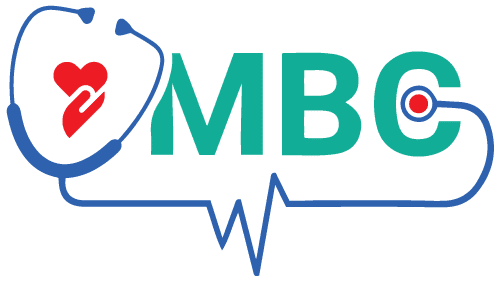While dealing with symptoms like weight loss, accurate coding is vital for the right clinical documentation and medical billing. The ICD-10 code for weight loss is used when a patient visits with an unintentional weight reduction issue.
It could be due to underlying medical issues, nutritional concerns, or part of a broader treatment plan; the proper ICD-10 usage is important for accurate insurance reimbursement and denial.
What is meant by ICD-10 code for abnormal weight loss, and why does it happen?
The ICD-10 code for weight loss refers to R63.4, which is also called abnormal weight loss. The diagnosis code is used when weight loss happens without a clear cause. It shows that something is wrong. This could be due to chronic illness, malabsorption, cancer, or a psychological condition.
The coders and billers should take care of it while using R63.4 by ensuring the healthcare providers have documented all the details. It involves duration, amount, or any associated symptoms or suspected conditions.
Important Codes for Weight Loss and Dietary Issues
Whereas R63.4 is the main dx code for weight loss, several other ICD-10 codes come into play, specifically when the patient encounters nutritional counseling or dietary management. The most commonly used one is Z71.3 for dietary counselling and surveillance.
It occurs when a healthcare provider offers nutritional advice or guidance on weight control. However, Z71.3 could not be used for cases when weight loss is abnormal or tied to a disease process. It is meant for preventive or advisory care but not for diagnosis.
Difference between abnormal weight loss and difficulty in losing weight
There is a difference between abnormal weight loss and difficulty in losing weight. With R63.4 that captures unconscious weight loss, the difficulty in losing weight requires a different clinical context that falls under obesity related codes.
It is done while capturing lifestyle management counselling codes that depend on the patient’s health goals and the physician’s details.
The coders must distinguish between R63.4 and Z71.3. The ICD-10 code R63.4 reflects a medical issue, whereas Z71.3 is used by patients who are guided towards weight loss. It could be routine visits for obesity, post-bariatric surgery counselling, or general wellness details. When the two codes are confusing, the claim denials become common when procedures or labs are billed that don’t align.
Can You Use Z71.3 Every Time?
Not always, the Z71.3 is appropriate when dietary advice is the sole reason for the visit, or is documenting significant components of the visit. However, it must not be used for complex clinical scenarios involving medical management.
The insurance does in-depth research about Z codes, because it suggests preventive care visits. The overuse of Z71.3 without clear documentation of counselling efforts or without aligning the type of visit billed results in claim rejections or audit risks.
If dietary counselling is one part of a visit that focuses on abnormal weight loss, it’s best to use R63.4 as the primary diagnosis and list Z71.3 as supporting code.
The Role of Medical Billing in Weight-associated Codes
From revenue cycle management, the distinction between R63.4 and Z71.3 can affect everything from claim reimbursement to audit triggers. It is relevant for outpatient primary care providers, bariatric centers, and endocrinology practices. The medical payers focus on medical necessity using vague preventive codes like Z71.3.
The accurate billing for the ICD-10 code for weight loss relies on chart review, consistent documentation, and understanding that diagnosis codes justify procedures and tests being ordered.
When the patients report significant weight changes, the coders should explore if there is a red flag for malnutrition, chronic illness, or psychiatric condition. In such cases, the R63.4 code becomes not only appropriate but necessary for billing justification. While Z71.3 should be used when counselling for a stand-alone service or supplement to the primary condition.
Eliminate Claim Mistakes with Expert Coding Assistance
At Med Bill collections, we specialize in assisting medical practices that simplify billing and coding for complex symptoms like weight loss. If you are unsure about Z71.3 and how to justify R63.4, or need help with training staff on proper documentation, we are here to guide you.
We ensure positive feedback with clean claims, faster reimbursements, and fewer denials.
Real-World Cases and Documentation Guide
For instance, consider a patient who visits a clinic due to a 15-pound loss over three months. The healthcare provider orders labs and refers the patient to gastroenterology and documents unexplained weight loss. The accurate billing would include R63.4 as the primary diagnosis.
Also, if the provider discusses dietary strategies to stabilize weight or improve nutrition, then Z71.3 can be used as a secondary diagnosis when counselling is documented.
Now, look for another case where a patient has a wellness visit about portion control and wants to follow a weight-loss diet. The healthcare provider offers structured advice to him. The Z71.3 code would be used as the primary diagnosis code. It doesn’t need R63.4 code unless another problem occurs. That’s why sometimes a claim goes wrong if the coder or biller misinterprets the document.
What happens when documentation doesn’t support the cause?
A frequent challenge is when the patient mentions difficulty losing weight, but documentation doesn’t support a clinical diagnosis of obesity or another coded condition. Z71.3 may seem like a natural choice, but it cannot be written unless the medical care providers document it.
If it is an obesity-related condition, then an ICD-10 code (like E66.9) could be used while documenting weight loss resistance or metabolic concern.
Why is the ICD-10 code for weight loss crucial for compliance?
Understanding when to use ICD-10 code for weight loss, like R63.4 and Z71.3, is vital for medical billing and appropriate documentation. The coders, the medical providers, and the billing teams must differentiate between abnormal medical symptoms and preventive counselling.
Using improper code can lead to a claim denial, while underusing R63.4 could mean missing out on reimbursements for medical care.
FAQs: ICD 10 Code for Weight Loss and Relevant Issues
Q:What is the ICD-10 code for weight loss?
The primary code is R63.4, which is used for abnormal weight loss, which is unintentional and not yet tied to a specific diagnosis.
Q:What is Z71.3 used for?
Z71.3 is used for dietary counseling and surveillance during visits where the patient is advised on diet and nutrition.
Q:Can Z71.3 be used every time while talking about nutrition?
Only use Z71.3 when counseling is documented and intentional service, when not just passing a comment, or when the primary concern is a medical issue.
Q:What is the difference between R63.4 and Z71.3?
R63.4 is for unintentional or abnormal weight loss; the symptom code justifies diagnostic evaluation.
Q:What if the patient has difficulty losing weight?
It requires obesity-related ICD-10 codes that should not be billed with R63.4 unless the patient is losing weight unintentionally.






